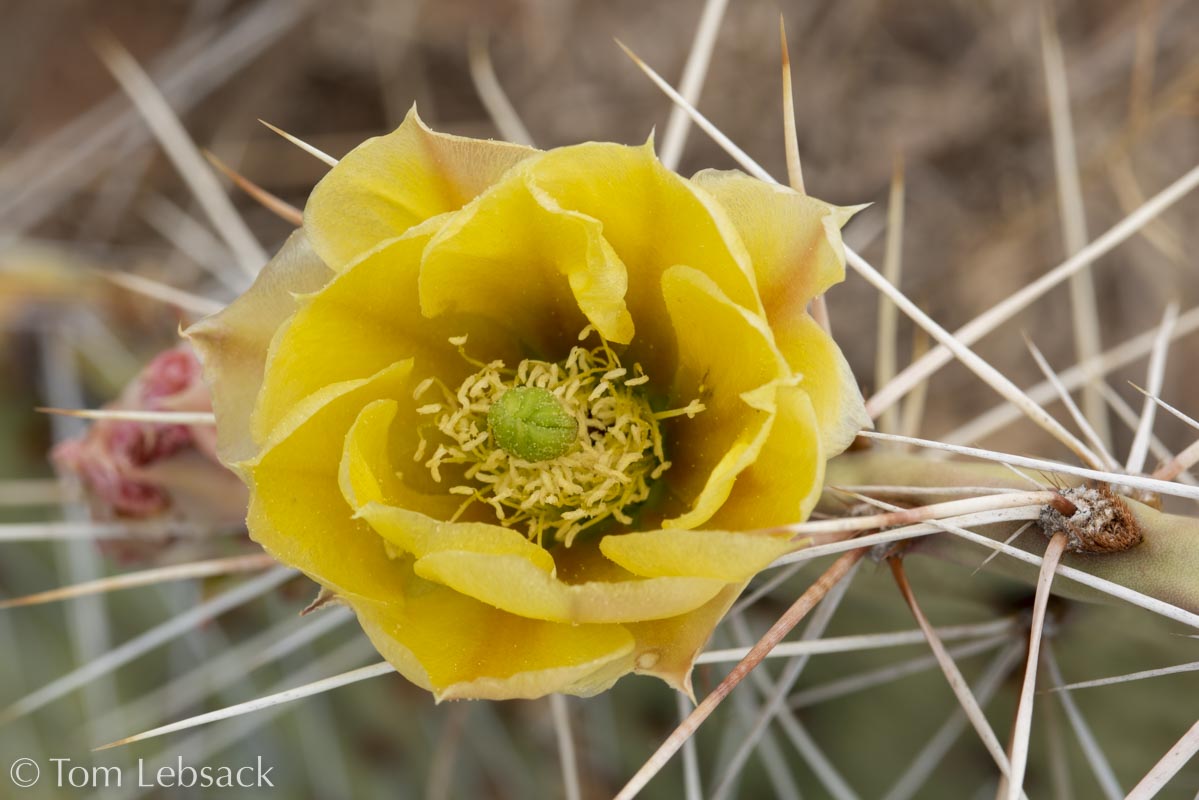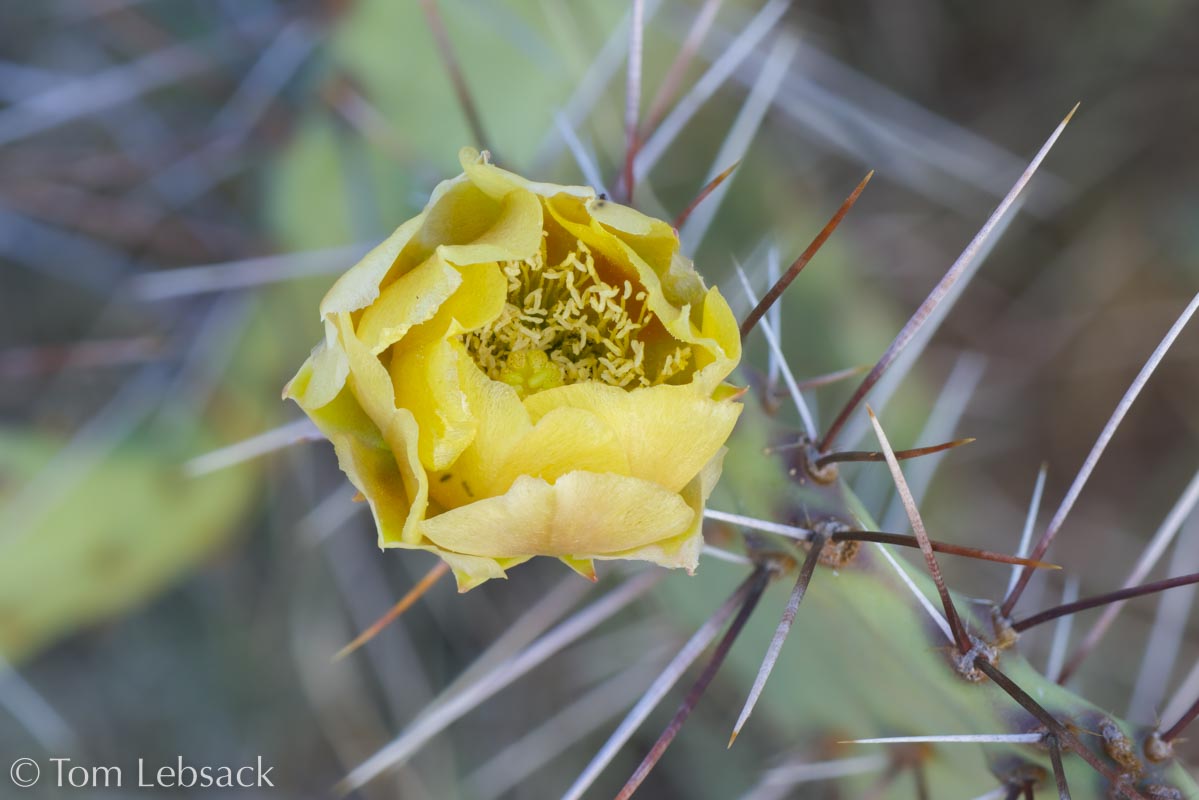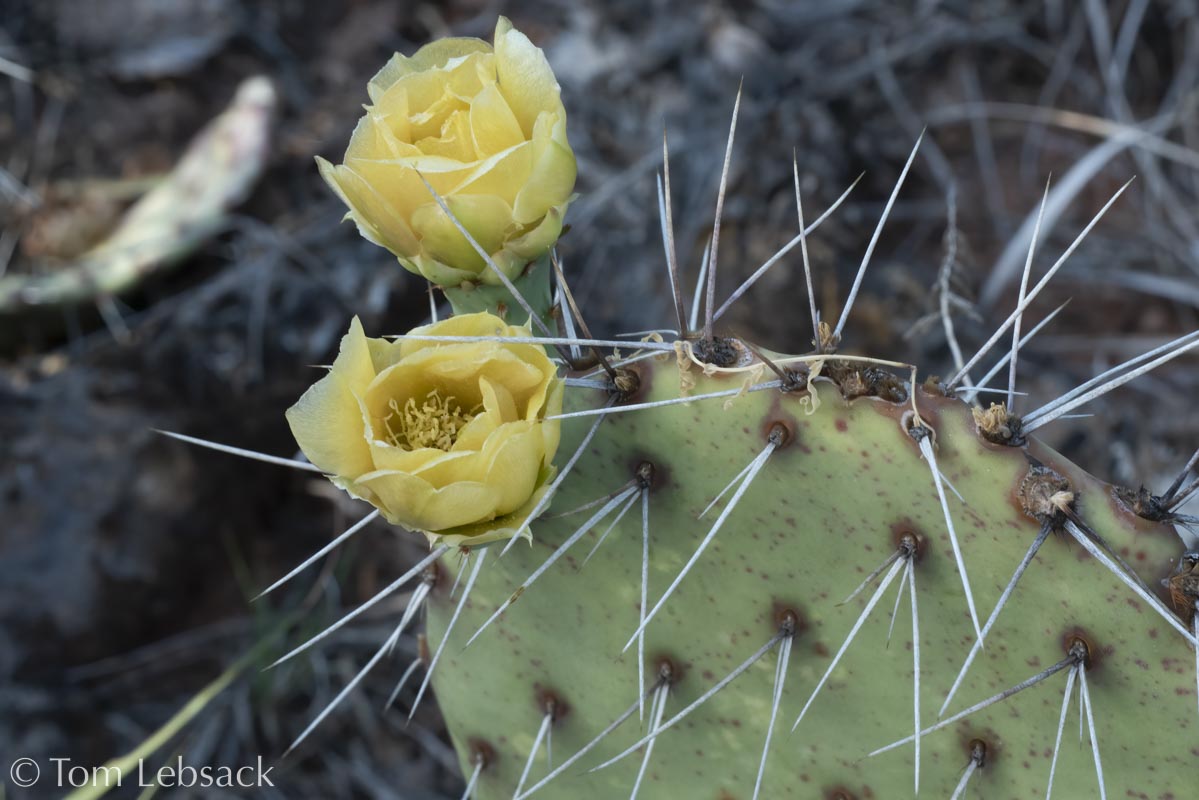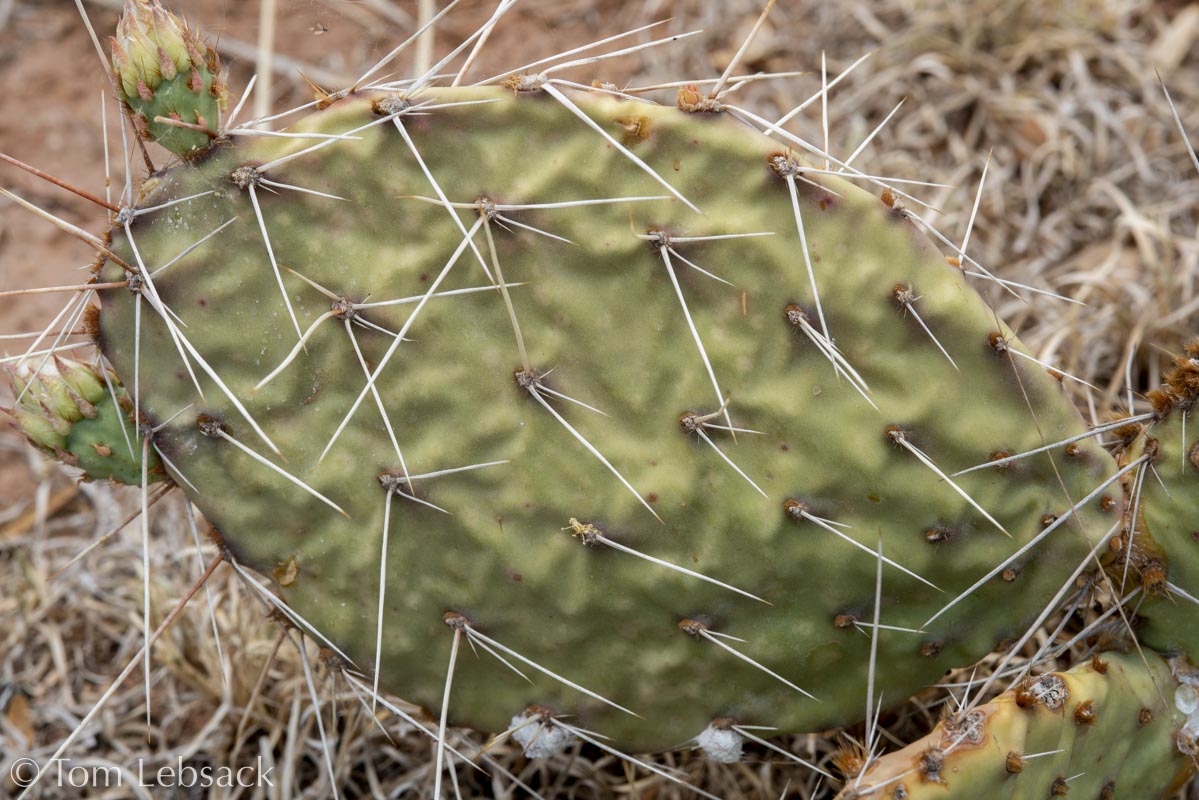Texas Wildbuds
Opuntia phaeacantha
(Tulip Prickly Pear)
| Scientific Name | Opuntia phaeacantha | USDA PLANTS Symbol | OPPH |
| Common Name | Tulip Prickly Pear | ITIS Taxonomic Serial No. | 19724 |
| Family | Cactaceae (Cactus) | SEINet Reference |
Click Here |
| Description | Habitat: Sandy to rocky soils in deserts, surrounding mountains and plains, 4000 to 7500 ft. Plant: Erect or sprawling,low-growing, plant in clusters 12 to 24 inches high. Pads & Spines: Green to dark green flattened pads, obovate to circular, 4 to 9 inches long and 2-3/4 to 8 inches wide; 8 or fewer spines per areole at most areoles above the bottom 1/4 of the pad; largest spines 1-1/4 to 2-3/4 inches long, usually bent downward but may point outward; completely grayish-white to tan or brownish/reddish near base; shorter spines less than 1 inch long and pointing downward. Inflorescence: Showy flowers are 2 to 2-3/4 inches across; inner tepals are yellow with red basal portions (rarely entirely pink to red); upper portions of filaments are pale yellow to white and the anthers are yellow; the style white and the stigma lobes are green to yellow-green. Opening by mid-day. Bloom Period: May and June. Fruit: Fleshy, dark red to purple on the outside, spineless, obovate to barrel-shaped, 1-1/4 to 2 inches long and 3/4 to 1-1/4 inches wide.. References: "Cacti of Texas" by Powell, Weedin and Powell, American Southwest and SEINet. |
BONAP Distribution Map Map Color Key Map Color Key | Texas Status: Native |
Banner photo of Castilleja indivisa and Lupinus ssp. taken along FM 1323 north of Johnson City, Blanco County
© Tom Lebsack 2025
Every attempt is made to provide accurate, up-to-date, and relevant information, but the completeness or accuracy of any information presented on this website cannot be guaranteed. I use authoritative references to insure high standards of accuracy and review and update the information frequently.





